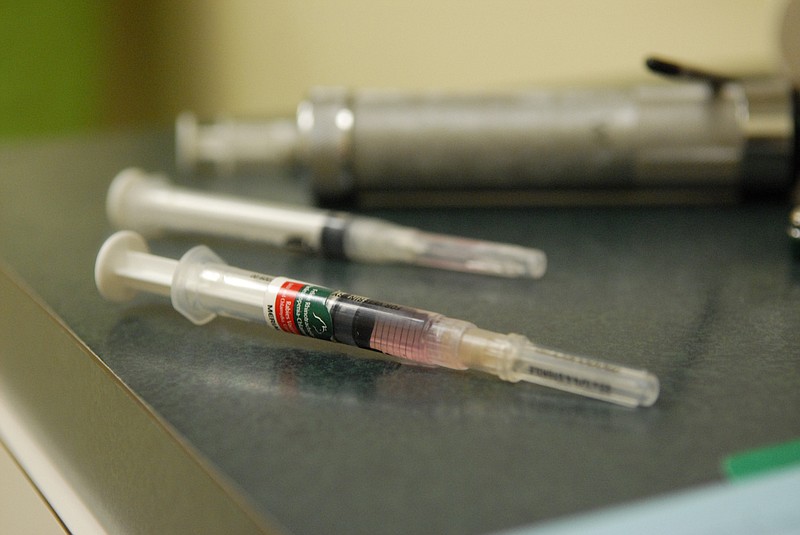A rabies-infected raccoon attacked a dog in Gilmer County, Ga., on March 9, according to a Georgia Department of Public Health, North Georgia Health District, news release.
The raccoon came into a residential yard off Walnut Street near East Ellijay City Hall. After attacking the dog that lived on the premises, the raccoon was killed and the head was submitted to the Georgia Public Health Laboratory, which reported the positive rabies results on March 14.
There were no other animals or humans exposed to the raccoon.

Since the dog had been previously vaccinated against rabies, it was revaccinated and placed in a 45-day home observation period during which the owner must report any illness to the Gilmer County Environmental Health Office.
Rabies is caused by a virus and is transmitted by a bite of a rabid animal through its saliva. Humans who are exposed to rabies must receive preventive treatments within a short period of time. Once rabies symptoms start to develop, the disease is almost always fatal. Humans normally start to develop symptoms in one to three months after exposure, but this incubation period can be shorter or longer.
Pet owners are strongly advised to keep their dogs and cats up to date on their rabies vaccinations. If a pet receives an initial one-year vaccine, it can receive a three-year rabies vaccination on the following year.
Rabies is prevalent in wild animals such as raccoons and skunks but can be found in coyotes, foxes, bats, bobcats and other wild carnivores. Rodents and opossums are rarely found with rabies, but a bite from any wild mammal should cause concern and be reported to your physician and local environmental health office.
Most humans who die of rabies in the United States acquired it from rabid bats. If you find a bat inside your home, do not handle it or release it to the outdoors; the bat will need to be tested for rabies if there is any chance of human contact. People are sometimes bitten in their sleep by rabid bats without knowing it.
All livestock species are susceptible to rabies including llamas and alpacas. Last year, a cow in an adjacent county was found to have rabies. Livestock animals that have regular close contact with humans or are very valuable, such as horses and show cows, should be vaccinated against rabies each year. Livestock owners are advised to consider rabies when an unknown illness occurs in an animal with possible neurological symptoms. Always have such animals examined by your veterinarian. Livestock animals usually acquire rabies from wild carnivores such as raccoons, bats and skunks.
Warn your children to avoid contact with wild mammals and any stray dog or cat and to report any contact with these animals to you right away.
For more information about rabies and its prevention, log onto the Centers for Disease Control and Prevention website at https://www.cdc.gov/rabies/.
